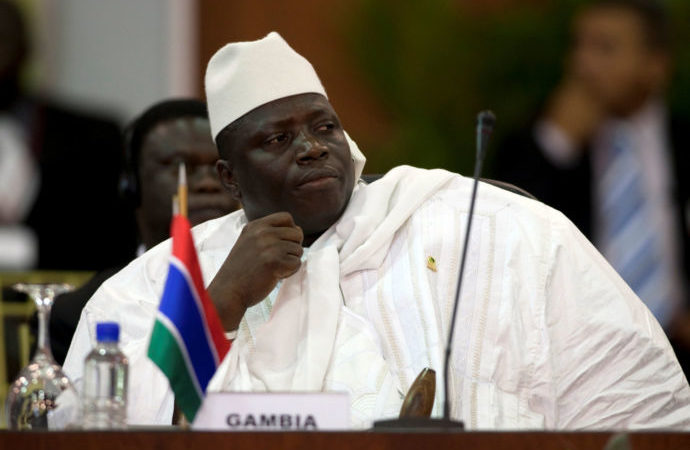Jammeh, who had conceded defeat last week, changes his position, demanding new polls due to “serious abnormalities”.
Gambian President Yahya Jammeh has said that he rejects the outcome of last week’s election that he lost to opposition leader Adama Barrow, only days after he conceded defeat to him in a public address.
The fresh announcement he made on state television on Friday throws the future of the West African country into doubt after the unexpected election results ended Jammeh’s 22-year rule.
Jammeh had conceded defeat on state TV last week, prompting wild celebrations over the ending of a government that human rights groups accused of detaining, torturing and killing opponents.
“After a thorough investigation, I have decided to reject the outcome of the recent election. I lament serious and unacceptable abnormalities which have reportedly transpired during the electoral process,” Jammeh said, changing his position on the election results.
“I recommend fresh and transparent elections which will be officiated by a God-fearing and independent electoral commission,” he said.
Jammeh’s announcement presents an unexpected and severe challenge to the incoming Barrow administration, which was already grappling with how to take the reins of power and deal with the army that, for two decades, was loyal to the president.
WATCH: Gambian President Yahya Jammeh concedes defeat in elections
The latest official figures gave Barrow a narrower win than initially announced – 43.29 percent of the votes for Barrow and 39.64 for Jammeh. Voter turnout was at 59 percent.
The African Union called Jammeh’s rejection of the results “null and void” since he had already conceded defeat.
“The Chairperson of the Commission strongly urges President Yahya Jammeh to facilitate a peaceful and orderly transition and transfer of power,” AU chief Nkosazana Dlamini-Zuma said, also calling on Gambia’s security forces to remain neutral.
Gambians worried
Soldiers were seen placing sandbags in strategic locations across the capital Banjul on Friday, a development that triggered widespread unease among the already-spooked population, who had been panic-buying food before the vote, due to fear of unrest.
Witnesses told the Reuters news agency that there was particular nervousness about the president’s statement that he would deal harshly with any troublemakers who took to the streets.
Opposition spokeswoman Isatou Touray, on social media, criticised a “violation of democracy” and called for people to “remain calm, lucid, vigilant and not retreat.”
The US state department said in a statement that Jammeh’s rejection of the results was an egregious attempt to undermine a credible election and remain illegitimately in power.
Senegal’s foreign minister, Mankeur Ndiaye, called for an emergency meeting of the UN Security Council and “solemnly” warned Jammeh not to harm Senegal’s interests or its citizens in Gambia.
Senegal, which has Gambia’s only land border, and entirely surrounds the small riverside country, is a non-permanent member of the Security Council. Its army intervened in Gambia in 1981, during a coup.
Source: News agencies

